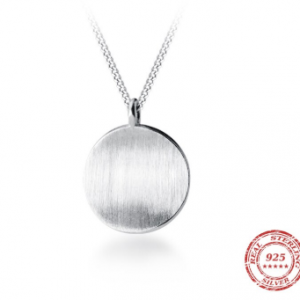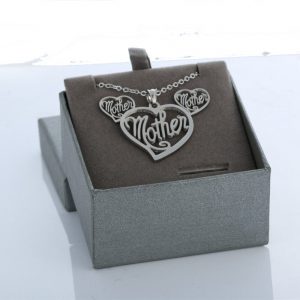Description

An Ayatul Kursi necklace is a piece of jewelry that features the text of Ayatul Kursi, which is a verse from the Quran, inscribed on a pendant or charm. Ayatul Kursi is considered to be one of the most powerful verses in Islamic scripture and is believed to offer protection, guidance. The pendant of an Ayatul Kursi necklace can come in various shapes, such as circular, rectangular, or oval.
Muslims often wear Ayatul Kursi necklaces as a way to show their devotion and connection to their faith. It can also serve as a constant reminder to recite Ayatul Kursi and seek the protection and guidance of Allah. Some people may also wear the necklace as a symbol of their love for Allah and a way to keep their faith close to their heart. In summary, an Ayatul Kursi necklace is a type of Islamic jewelry that features the text of Ayatul Kursi inscribed on a pendant or charm.
One common method is through physical vapor deposition (PVD) coating, which involves depositing a thin layer of a colored material onto the stainless steel surface using a vacuum process.
This results in a range of colors, including gold, rose gold, black, blue, and rainbow. Another method is electroplating, which involves applying a layer of metal onto the stainless steel surface using an electrical current. This can create colors such as silver, gold, and black.
Cape Town has a significant Muslim population, with a rich history and cultural heritage. The roots of Islam in Cape Town date back to the 17th century, when the Dutch East India Company brought enslaved people from various parts of the world, including Indonesia, Malaysia, and Mozambique, who were Muslim. These enslaved people played a significant role in the establishment and spread of Islam in the region.
Today, Muslims make up around 20% of Cape Town’s population and are an integral part of the city’s multicultural fabric. The city is home to numerous mosques, including the Auwal Mosque, which is the oldest mosque in South Africa and dates back to 1794.







